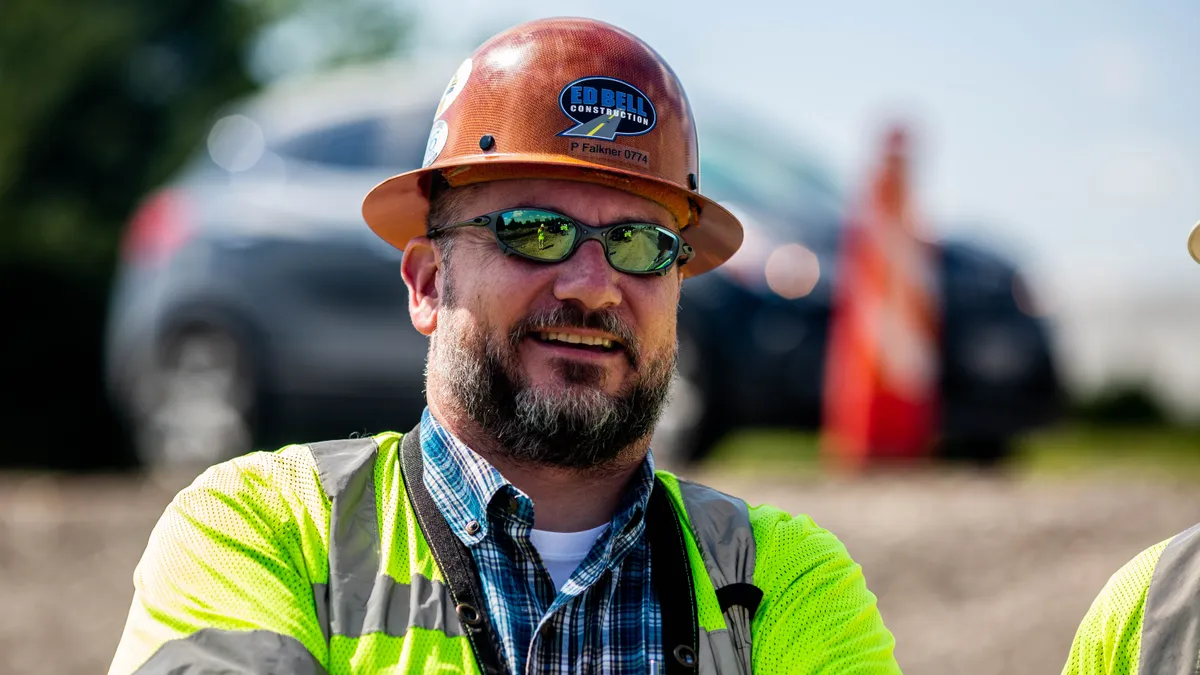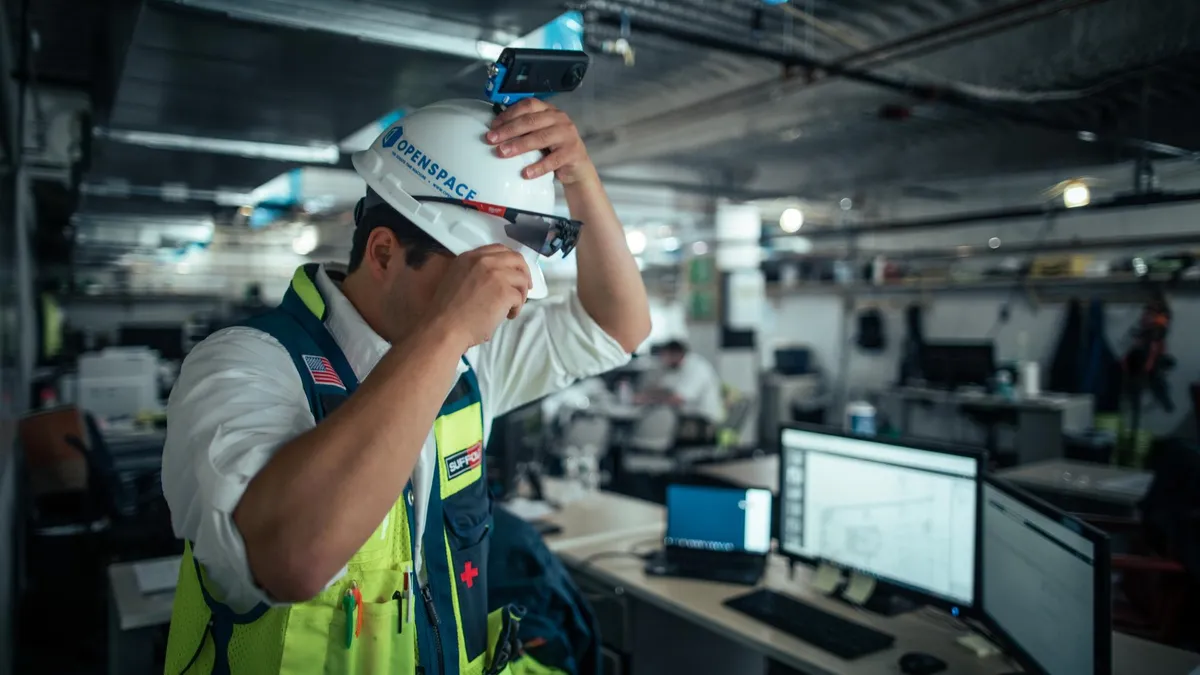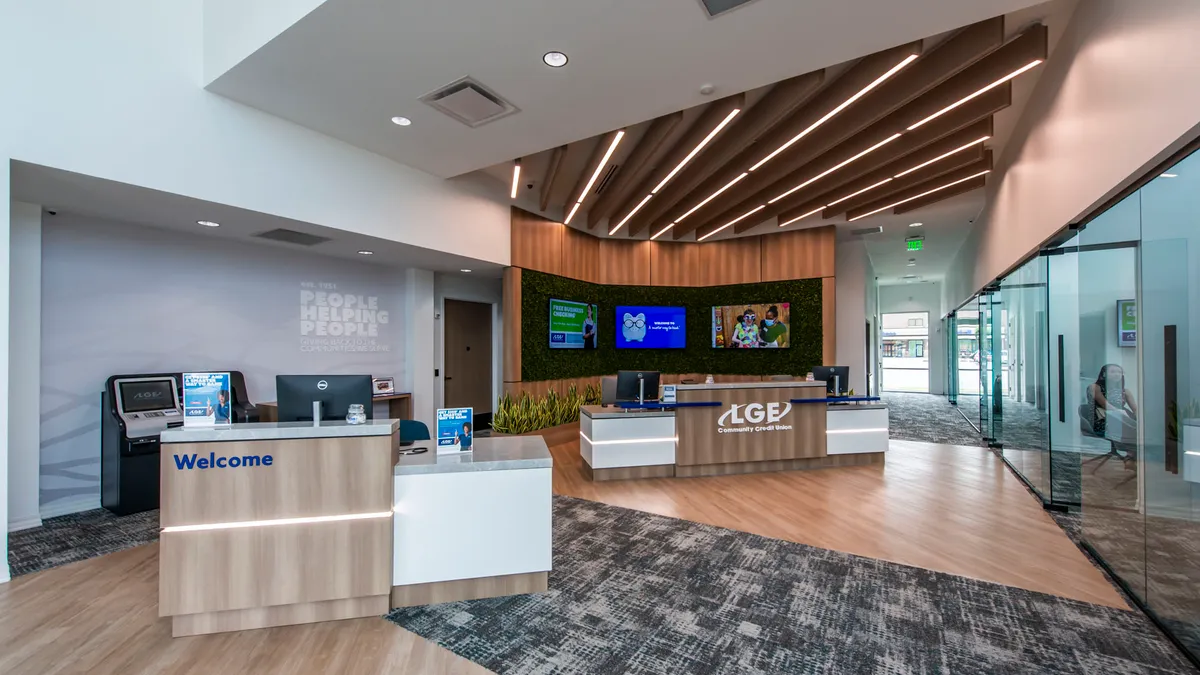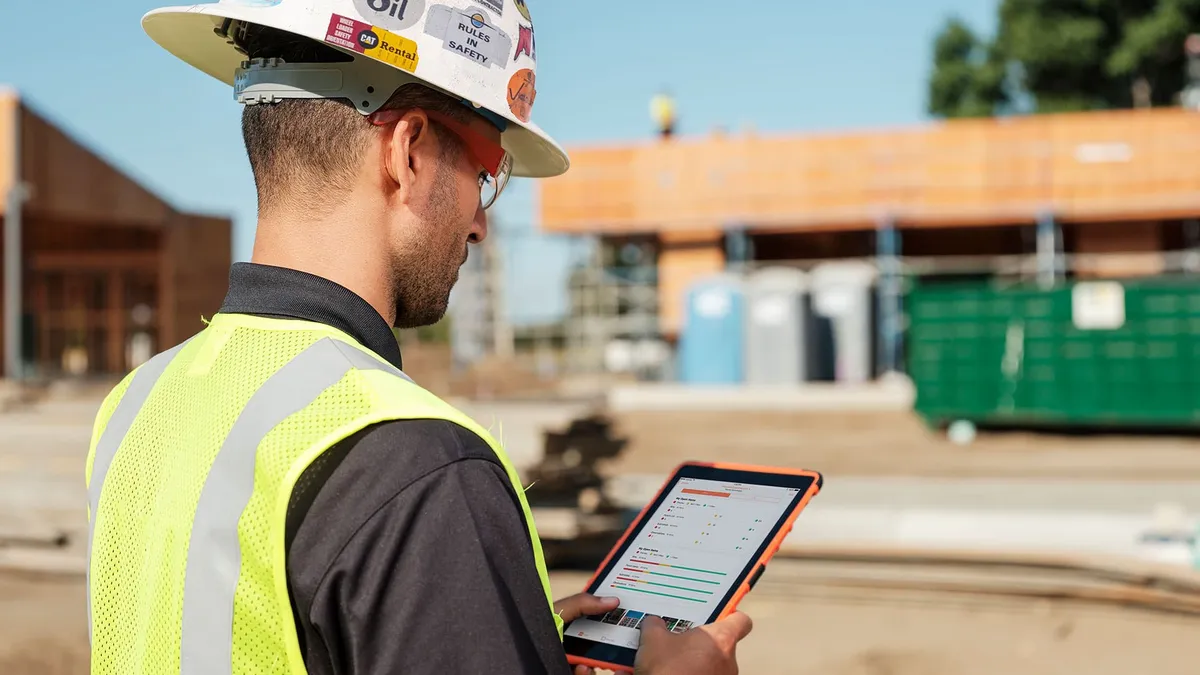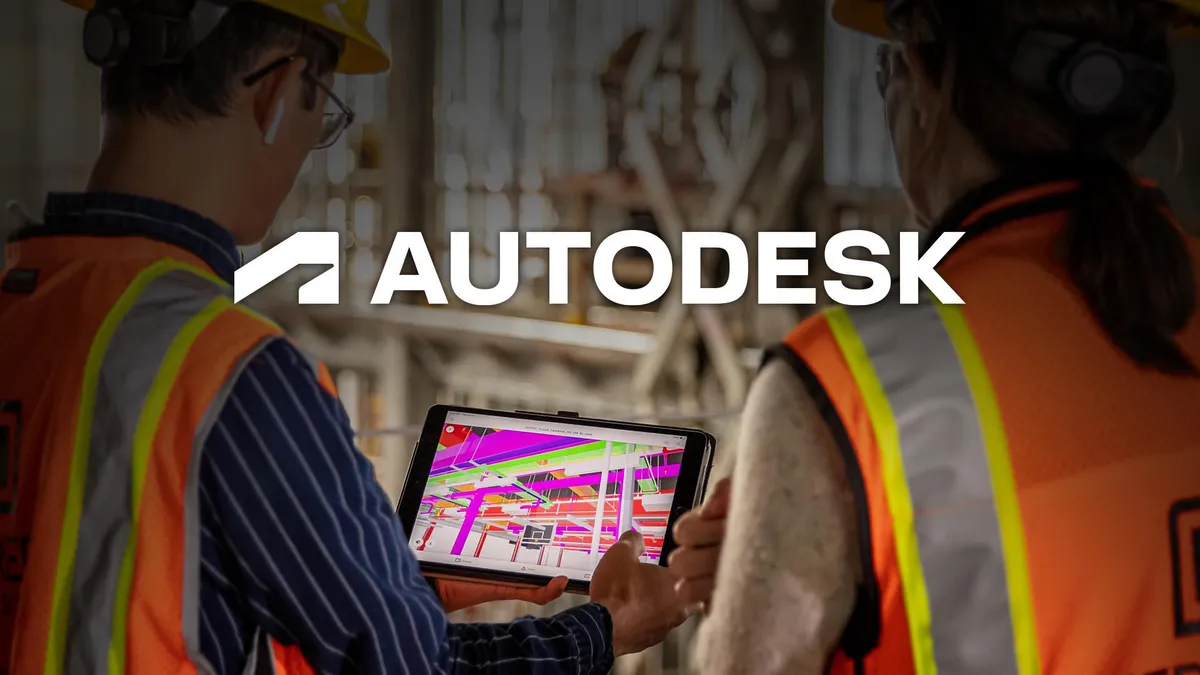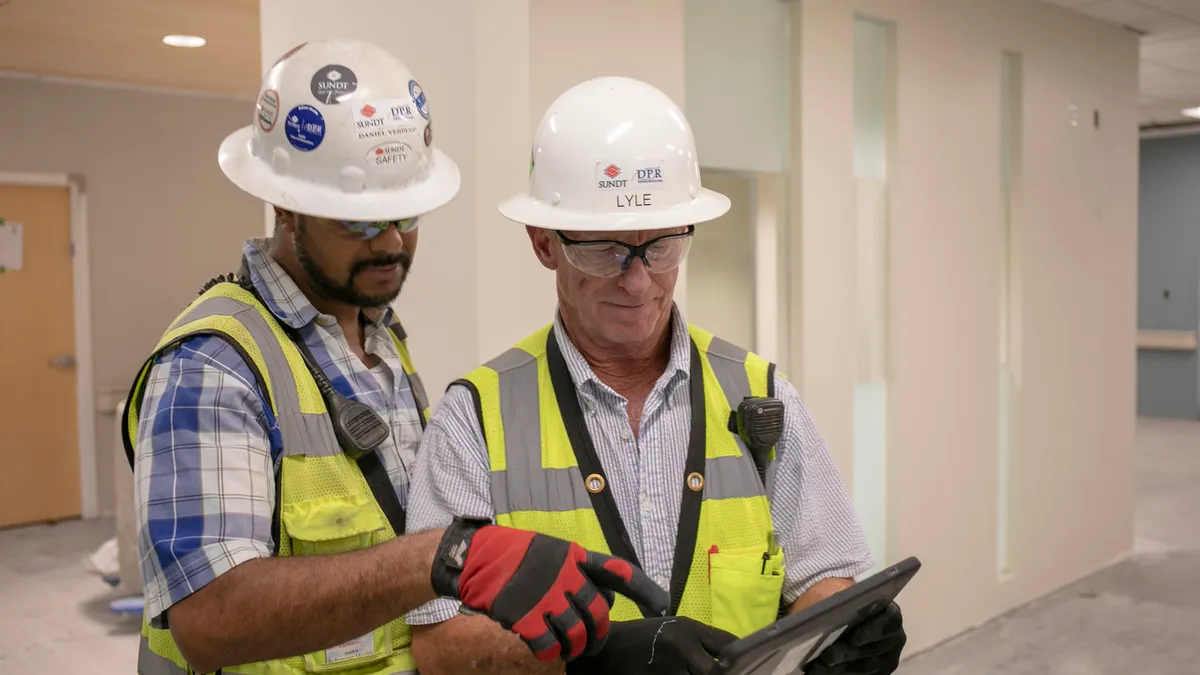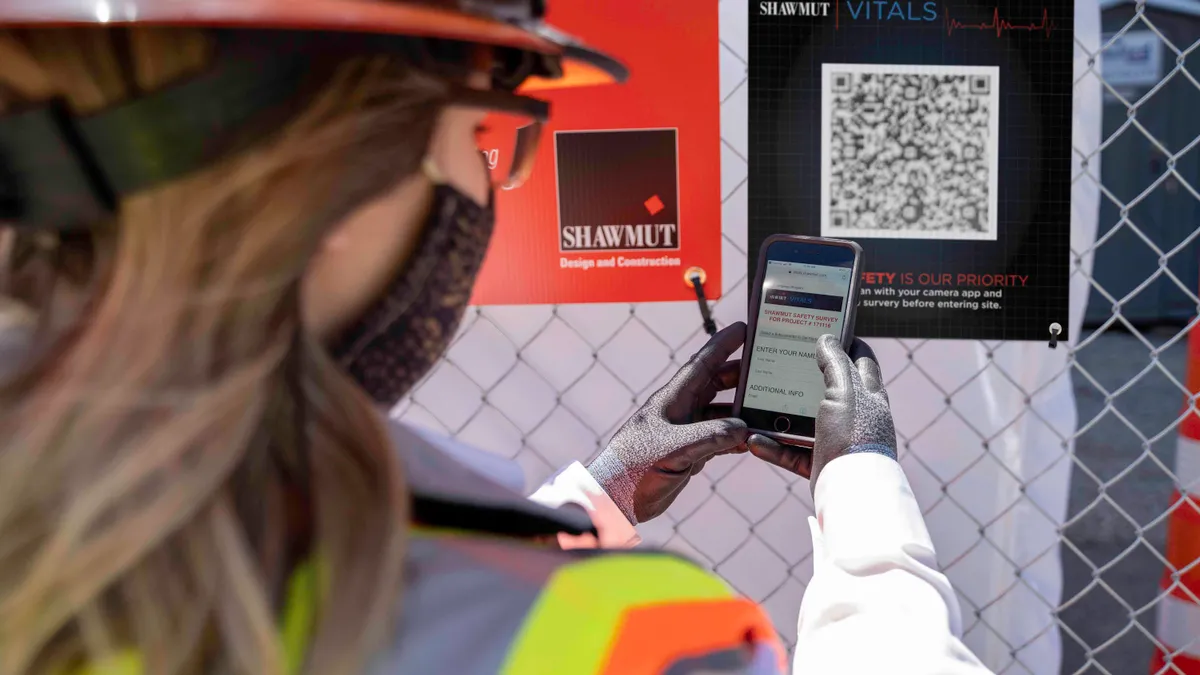ConTech Conversations presents a discussion with a leader in the construction technology field each month. Click here for past discussions.
Contech is having its time in the sun right now.
Large companies and the "little guys" alike are posting strong revenue gains and reporting higher product engagement, even amid supply chain issues and a pandemic.
Bridgit, a workforce intelligence program based in Toronto, is no exception: the company raked in $24 million in funding last October. In 2019 it released a new program, Bridgit Bench, which allows contractors to visualize where their money for labor is going and move people around on jobsites to tamp down margins.
Here, Mallorie Brodie, CEO and co-founder of Bridgit, talks about the contech environment in the pandemic, the company's performance and her advice for how women can successfully navigate the venture capital environment.
Editor's Note: This interview has been edited for brevity and clarity.
CONSTRUCTION DIVE: How did Bridgit get its start?
BRODIE: We started the company in 2013 and officially launched our first product in March 2014. My business partner, Lauren [Lake], and I went to Western University together, which is a Canadian university. She was in civil engineering, I was in the business program. We both independently applied for this program called "The Next Canada," a business accelerator program, kind of like the equivalent of Y Combinator in Canada. We actually got randomly put on a team together to come up with an initial concept.
Very quickly, we connected on the fact, probably prompted by Lauren's civil engineering degree, that both of our families had been in the construction business. Her grandfather was a specialty trade contractor. My grandfather had a demolition company, and my great grandfather was in steel fabrication. And so we connected on that quickly. Her experience on site was very much one where she was handed a clipboard, a pen and a paper even though she was using her smartphone or an iPad in her everyday life.
You launched Bridgit Bench in May 2019, right before the pandemic. How did that affect your business?
So we saw both an acceleration and revenue growth, and also just usage of the product during [the pandemic]. Basically, what happened was all the workforce plans were on whiteboards and Excel spreadsheets, and so for anyone that wasn't in the office, they immediately needed a digital way that they could collaborate on their workforce plan. So that kind of speaks to the acceleration of sales.
From a usage standpoint, because certain projects were being shut down, they were having to reassign individuals to different projects. And so the actual velocity of the workforce planning was really increasing and the changes that were happening on site were happening way faster and more frequently than they would have previously. So it was definitely, I think, good for the people that had already signed up for Bridgit Bench. Then we also saw a number of companies choose Bridgit Bench because of some of the challenges that presented themselves.
What do you think the future of contech is?
On the software side, I think anything analytics related is going to be really interesting. I think there's so much data that's been collected for the last number of years and to be able to really summarize that with meaningful and more productive insights, I think is really interesting. There's still a lot of innovation on the more partner side — robotics, cameras, 3D printing, all of that. I think we're seeing a lot of work.
I think prefab is something that we've been talking about, it has been progressing for a long time, but it's sort of like: who is going to be the one to fund the more testing and experimentation around that? Because it's something that I think will be expensive to really understand and scale across the industry. So I think there's a lot of potential there, but it comes down to who is going to pay for that innovation to happen upfront. But, I'd say the piece that we're most connected to and most excited about is the data piece that comes from a lot of the software solutions.
What challenges did you face starting your business as a woman and a fresh graduate in the space?
As a first time founder, there's a lot of challenges just broadly, male or female. You don't have an established network of investors. You don't necessarily have a decade of industry experience. Research is really important. You really have no professional credibility at all when you're starting in business school. So I think that that can become slower in the beginning. So if I think of us launching our first product comparisons, verses launching the second product, things just moved so much faster when we launched the Bench offering, because we had a really high-performing engineering team and we had a group of investors, we had a network of potential investors, we do have contacts in the industry. We had been in the industry for essentially a decade at that point, so things just moved so much faster.
I think one thing that's been well researched and documented specific to females is around funding. And it's essentially been researched and proven by many different sources that female-led companies don't get as much funding in the earlier stages, when it's more of a concept or a vision. And it is only when you really have the revenue metrics and the growth metrics that things start to become a little bit more equal. I think we definitely struggled with that in the early days. We had [male] counterparts that would raise a lot of capital with a smaller market opportunity, and no traction, but just telling the story, essentially, and we always needed to have the revenue numbers to back up.
The other piece is just a lot of investors invest in companies where they can almost see themselves in the founder. Whereas in most of the VCs, it's mostly a male dominated industry. The chance of an investor coming along and seeing themselves in Lauren [Lake] or myself is basically zero. So that just means that the chance of really connecting with someone is probably lower for a female. I think the ecosystem has progressed, we have a lot of female-led, or females participating in venture capital, and more funds specifically focused on investing in female-led companies. We're sort of past the point where I think it matters that much given the revenue traction we have, but I think in the earliest days for new founders, it is a challenge. That hasn't entirely been addressed at this point.
Do you have any advice for women who want to launch a contech startup?
There are so many more funds now that do have a bit more of a focus on female-led businesses and there are actually quite a number of female founders in the construction tech ecosystem. I'd say, as a starting point, just connect with those people and see what the lessons learned are. Look for VCs that have invested in other female-led companies. If a VC has never invested in a female-led company then I personally feel like the chance of you being the first is probably lower. So focus on the VCs that have done some investing in more diverse teams.
And, I think no matter the business, no matter the founder, there are going to be challenges. There is going to be a different set of challenges for every founder, and it's not for the faint of heart. So, you know, this may be one challenge for them specifically, but for another founder, there might be some other challenges that you don't have. And so you're going to have to learn to be resilient, regardless.









